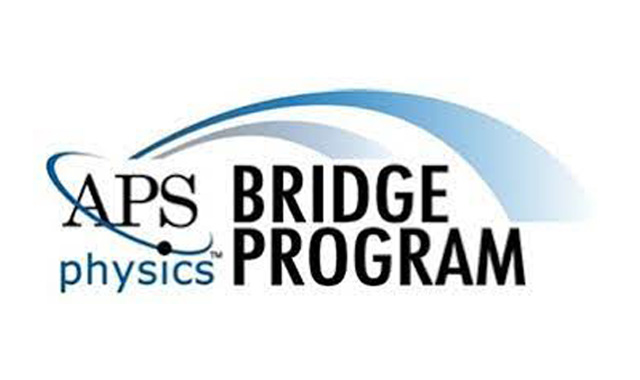
American Physical Society Bridge Program
UTSA is a member institution of the American Physical Society Bridge Program.
The American Physical Society Bridge Program (APS-BP) is an effort to increase the number of physics Ph.D.s awarded to underrepresented minority students. The APS-BP has done this by creating sustainable transition (bridge) programs and a national network of doctoral granting institutions that provide substantial mentoring for students to successfully complete PhD programs.
UTSA Program
Both the M.S. and Ph.D. program in Physics offers the advantage of a solid foundation in Physics combined with outstanding research at the forefront of current cutting-edge topics. It is one of a handful of programs in the U.S at a minority-serving institution that offers a strong Physics preparation while training in topics such as Astrophysics and Cosmology, Biophysics, Computational Physics, Condensed Matter Physics, Materials Science, Nanotechnology and Ultramicroscopy, and Space Science. Since its inception in 2005, the program has had over 139 Ph.D. students. It is currently the 4th largest Physics graduate program in Texas and is still growing. Graduates from the program have found employment in academia, industry, or government. The program is designed to provide students with flexible opportunities to specialize in different areas of experimental, applied, and theoretical physics.
Faculty in the program are among the leaders in their field of research and offer a variety of research projects. Cornerstones of the program are (1) individual program of study to solidify undergraduate preparation, and (2) research experiences and advanced coursework within cutting-edge facilities, close mentorship from peers and research advisors, and professional development. Students also have additional research training opportunities through collaborations with other local research institutions such as the UT Health San Antonio, Southwest Research Institute, and the Air Force Research Laboratory at Ft. Sam Houston, as well as national and international universities.
UTSA Program Contacts
Dr. Kelly Nash
Professor and
Associate Vice Provost for Faculty Affairs
Kelly.Nash@utsa.edu
210-458-6153


